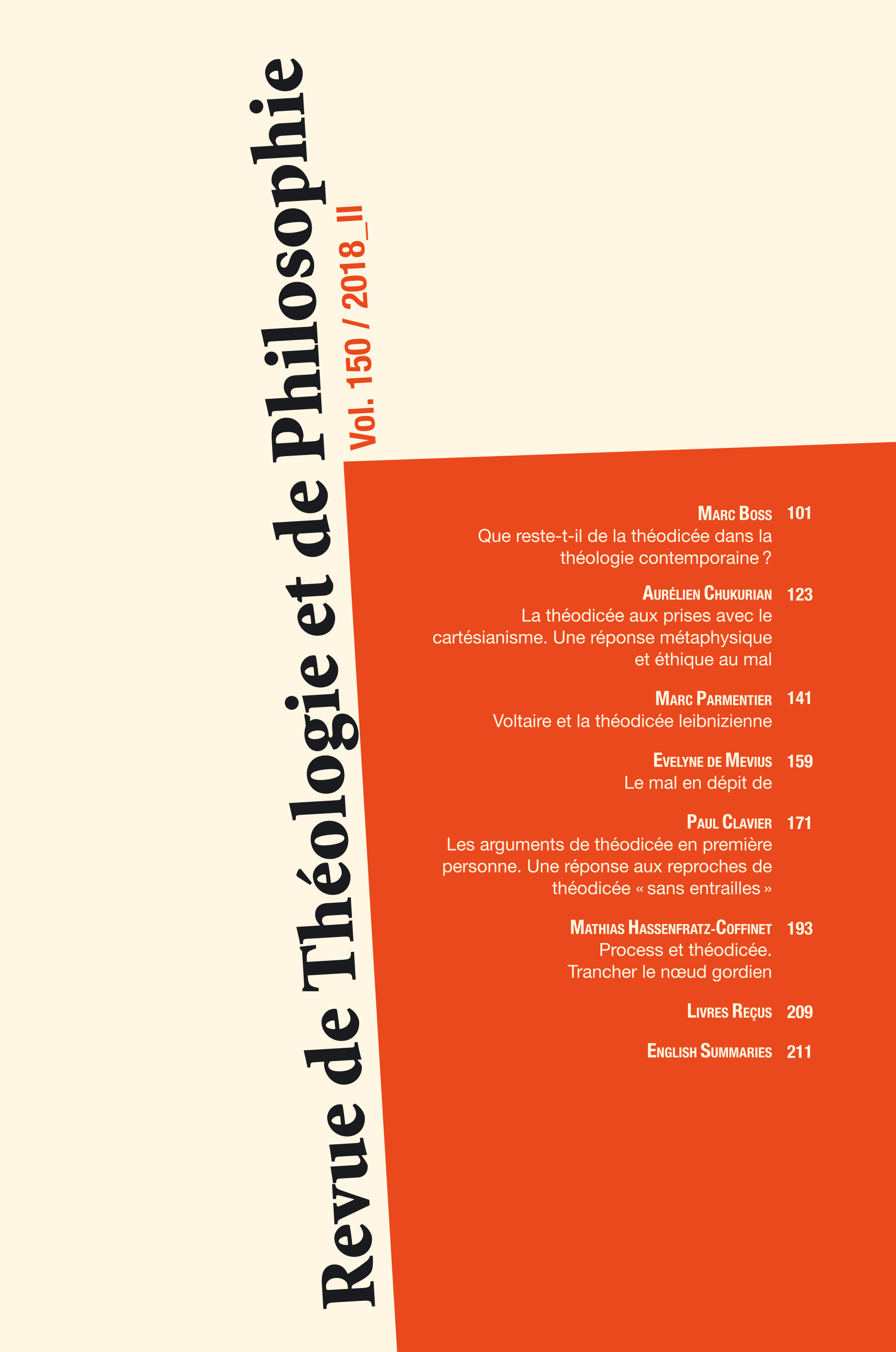Que reste-t-il de la théodicée dans la théologie contemporaine ?
Résumé
Pour comprendre les réserves critiques et les reconfigurations sémantiques dont le projet même d’une théodicée fait l’objet dans la littérature théologique contemporaine, un inventaire typologique est ici proposé. Son critère de classification est fourni par le trilemme classique des théodicées du Grand Siècle : comment concilier les thèses de la toute-puissance et de la parfaite bonté de Dieu avec celle de la réalité du mal, sachant que deux seulement de ces trois thèses peuvent être soutenues conjointement ? Les trois principaux types acceptent les termes du trilemme. Illustrés par les postions de Hans Jonas, John K. Roth et John Milbank, ils se définissent par leurs renoncements respectifs aux thèses de la toute-puissance de Dieu, de sa parfaite bonté et de la réalité du mal. Trois autres types, exemplifiés par les positions de Richard Swinburne, Paul Ricœur et Odo Marquard, récusent les termes du trilemme en renonçant respectivement aux exigences d’une conception non instrumentale du mal, d’une intelligibilité systématique et totalisante des desseins divins, et d’une compréhension théiste de l’intervention providentielle dans le cours de l’histoire.
Comment citer
Formats de citations
Numéro
